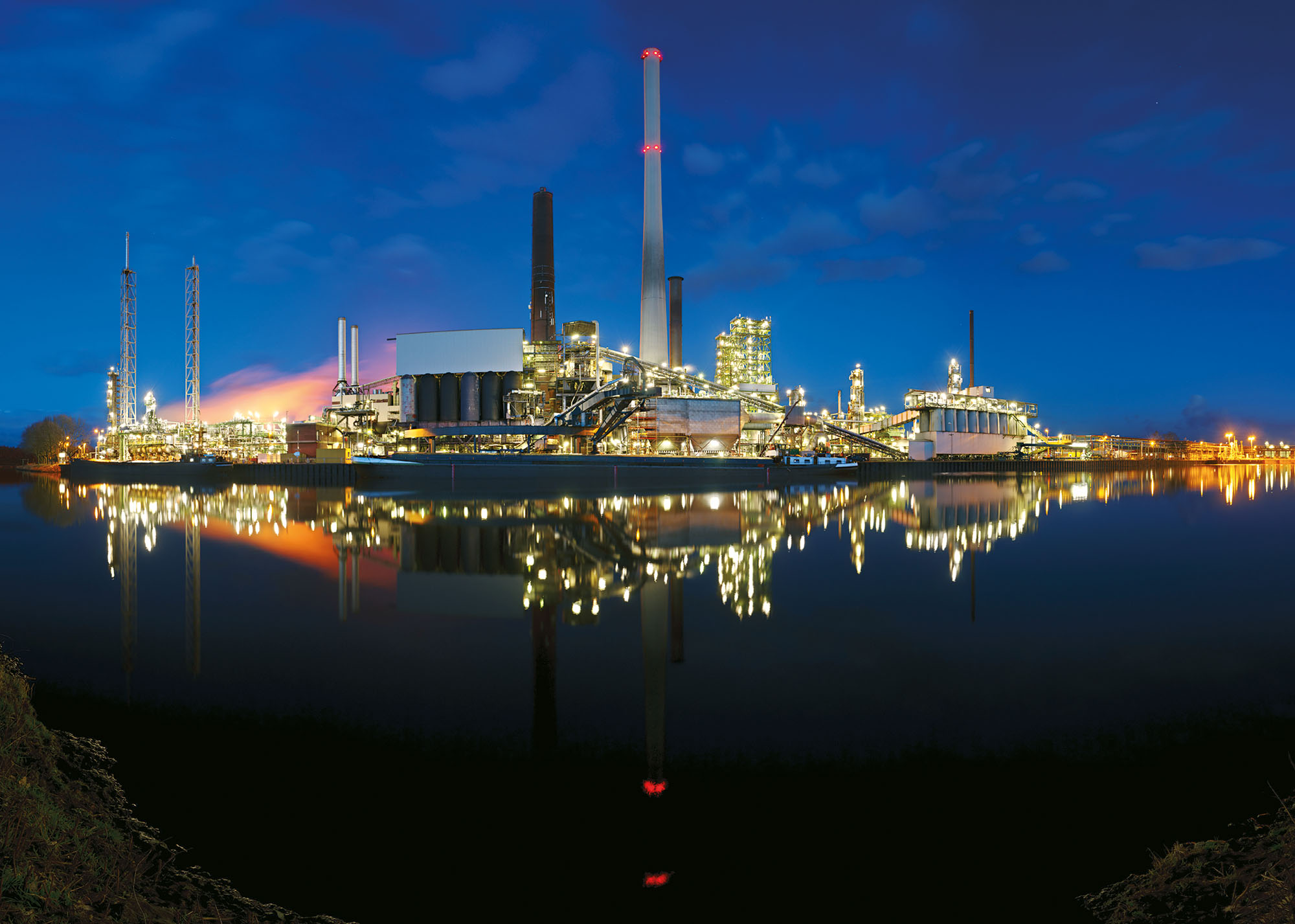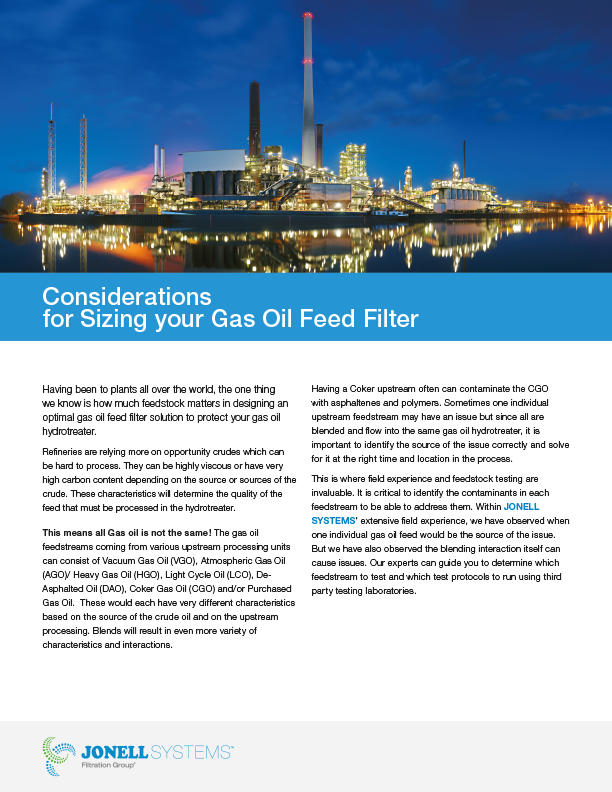
Gas Oil Feed Filters
Considerations for sizing your Gas Oil Feed Filter
Having been to plants all over the world, the one thing we know is how much feedstock matters in designing an optimal gas oil feed filter solution to protect your gas oil hydrotreater.
Refineries are relying more on opportunity crudes which can be hard to process. They can be highly viscous or have very high carbon content depending on the source or sources of the crude. These characteristics will determine the quality of the feed that must be processed in the hydrotreater.
This means all gas oil is not the same! The gas oil feedstreams coming from various upstream processing units can consist of Vacuum Gas Oil (VGO), Atmospheric Gas Oil (AGO)/ Heavy Gas Oil (HGO), Light Cycle Oil (LCO), De-Asphalted Oil (DAO), Coker Gas Oil (CGO) and/or Purchased Gas Oil. These would each have very different characteristics based on the source of the crude oil and on the upstream processing. Blends will result in even more variety of characteristics and interactions.
Having a Coker upstream often can contaminate the CGO with asphaltenes and polymers. Sometimes one individual upstream feedstream may have an issue but since all are blended and flow into the same gas oil hydrotreater, it is important to identify the source of the issue correctly and solve for it at the right time and location in the process.
This is where field experience and feedstock testing are invaluable. It is critical to identify the contaminants in each feedstream to be able to address them. Within Jonell Systems’ extensive field experience, we have observed when one individual gas oil feed would be the source of the issue. But we have also observed the blending interaction itself can cause issues. Our experts can guide you to determine which feedstream to test and which test protocols to run using third party testing laboratories.
Step by step guide to identify and solve issues with your gas oil hydrotreater.
- Has a crude feed been changed? If so, feed needs to be tested to ensure optimal filtration performance
- How many feedstreams blend together prior to the hydrotreater? The hydrotreater could have challenges with multiple streams because not all have been treated the same. There may be an issue in one stream which can impact the processing of the whole blended feed as some feed streams are more problematic.
- Test each feed stream to identify solids and semi-solids contaminants in each so they can be correctly filtered out. Also test the blended stream to ascertain mixture interactions.
- It may be necessary to test before and after process changes (pressure or temperature) in the blend prior to the hydrotreater as these may instigate solids precipitation or polymer formation.
- Has any upstream processing changed in any of the gas oil feeds?
- Have any changes been made in steady state operations? For example, the temperature at which the feed is being brought in or if it is being stored or not stored etc can impact the hydrotreater.
Additional Considerations: Designing your Gas Oil Feed Filter
Besides the above, the regular feed conditions determine the optimal filtration solution like the temperature, pressure and flow rate of the feed.
Another consideration when designing the filtration solution is the maintenance requirements. A cartridge-based system needs regular cartridge change outs while an automated backwash system needs periodic filter media cleaning and valve maintenance.
Disposal of the contaminants needs to be considered as well when designing a filtration solution. Backwash capacity for an automated backwash system needs to be taken into account while for a cartridge based system, the cost of disposal of cartridges and landfill costs should be reviewed.
The contaminants and process details will determine the ideal filtration solution. Jonell Systems’ scientific approach based on 3rd party feed testing drives our recommendations. Our complete portfolio of solutions ranging from bag filters, high flow liquid vessels and automated backwash systems allow us to recommend an optimized solution based on the needs of reach refinery. Our ability to customize the cartridge media based on the feedstream analysis and build the backwash unit specifically to suit the process needs, gives your plant the advantage.
Talk to us if you are having issues with your Gas Oil Hydrotreater, and we can help determine if your filtration solutions needs optimization.
Explore our extensive range of filter cartridges or get in touch to organize an obligation-free filtration optimization consultation today!

